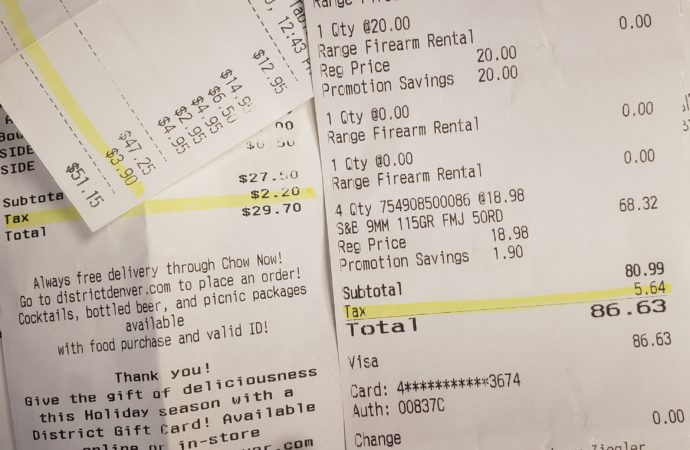Colorado real estate transfer taxes
- State Documentary “Fee” (real estate transfer tax)
Upon the transfer (conveyance) of real property, a state statute gives all Colorado counties the power to collect a real estate transfer tax. The authorization is found in Colorado Revised Statute 39-13-101 et seq.
Each county assessor is responsible for determining the actual value of any property. The purpose of this real estate transfer tax is stated in the controlling statute’s legislative declaration as helping to establish what that market value is. To do so, the assessor’s office needs to maintain a continuing record of the total price paid by purchasers.
The tax is calculated at one penny for every $100 of the purchase price (.01 percent[1]). As an example, a house selling for $450,000 would see imposed a transfer tax of $45. Values of real estate under $500 are excluded.
(An additional charge to cover the cost of processing the recorded document may be added to the tax so that the total “doc fee” shown on a closing form is likely higher than the tax.)
The tax is imposed upon transfer of all residential, commercial or other real property. There are a few exceptions, the primary one being that no government (federal, state or local) must pay the tax, although it must show the purchase price on the recoded document. Another important exception is the transfer of inherited property.
The law directs the tax be collected when the real estate transfer is to be recorded at the county’s clerk & recorder’s office. The tax is accepted by the clerk’s office and deposited by the county treasurer to be used as general fund revenue for the county.
The law creating this tax was passed in 1963. It has not been modified since.
- Local transfer taxes
There are 12 different towns in the mountains / Western Slope that impose real estate transfer taxes. These were extant at the passage of the Taxpayer’s Bill of Rights in 1992 and so were “grandfathered in.” The towns with the tax are shown in the accompanying table.
The constitutional provision created a statewide prohibition on the creation of new transfer taxes or the increase of existing transfer taxes
Towns with authority to impose a real estate transfer tax
| Town |
Percentage of purchase price |
| Aspen |
1.5 ** |
| Avon |
2.0 |
| Breckenridge |
1.0 |
| Crested Butte |
3.0 |
| Frisco |
1.0 |
| Gypsum |
1.0 |
| Minturn |
1.0 |
| Ophir |
4.0 |
| Snowmass Village |
1.0 |
| Telluride |
3.0 |
| Vail |
1.0 |
| Winter Park |
1.0 |
There was no state law governing the adoption of local transfer taxes. All towns and cities on the list are home rule municipalities and they adopted their real estate transfer taxes pursuant to their constitutional authority under Article XX to do so as a matter of local concern. This explains why only municipalities, not counties, have legacy transfer taxes that predate the prohibition created in the Taxpayer’s Bill of Rights.
** Actually, two separate taxes totaling 1.5%: Wheeler Opera House RETT 0.5%; Housing RETT 1.0%, and the first $100K is deducted prior to applying the HRETT
This synopsis was written by Penn R. Pfiffner in February 2021. The author wishes to recognize the assistance of the Colorado Municipal League, which supplied the rates in the table and added language about home rule.
[1] See 39-13-102 paragraph 2(b)







